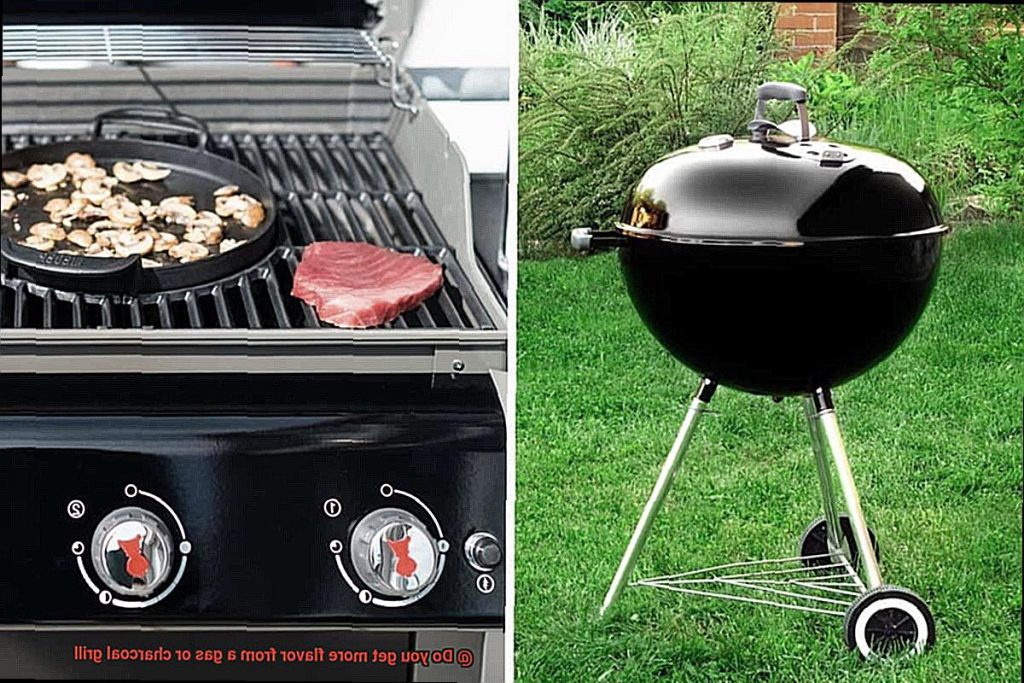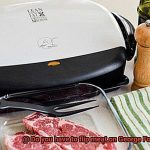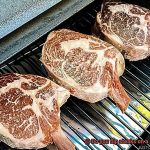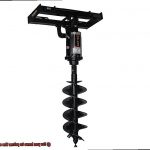Summer is in full swing, and that means one thing: it’s time to fire up the grill. There’s nothing like the sizzle of a perfectly cooked steak or the aroma of grilled veggies wafting through the air. But amidst all the excitement, there’s one question that has been plaguing grill enthusiasts for years- which grill produces more flavor: gas or charcoal?
It’s a debate that has raged on for ages, leaving many of us scratching our heads. On one hand, charcoal grilling provides an authentic smoky flavor that can’t be beaten. On the other hand, gas grills are often praised for their convenience and ease of use.
So what’s the verdict? Which type of grill reigns supreme when it comes to producing mouth-watering flavor?
In this article, we’ll dive deep into the world of grilling and settle this fiery debate once and for all. We’ll explore the advantages and disadvantages of both gas and charcoal grilling when it comes to flavor, texture, convenience, and environmental impact.
Whether you’re a seasoned grill master or a weekend warrior looking to up your game, this article will help you discover which type of grill is best suited to your taste buds. Get ready to find out whether gas or charcoal grills truly rule the roost when it comes to flavor.
Contents
Factors to Consider When Choosing a Grill
Grilling is more than just a cooking method; it’s a way of life. Whether you’re a seasoned grill master or a novice cook, selecting the right grill can make all the difference in your outdoor cooking experience. With so many different brands and models on the market, it can be tough to know where to start. Don’t worry, we’ve got you covered. In this article, we’ll explore the key factors to consider when choosing a grill.
Fuel Type
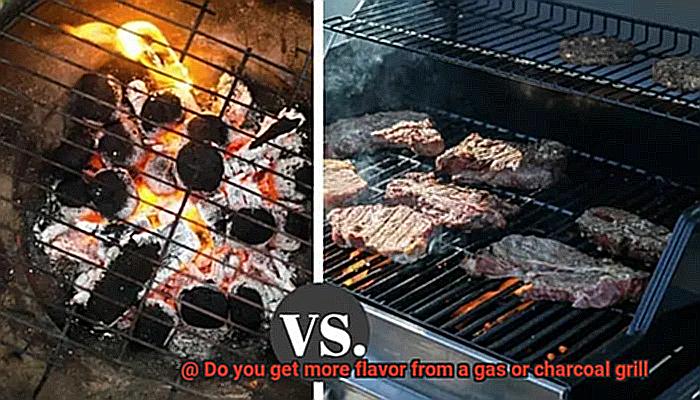
The first and most significant factor to consider is the type of fuel you want to use: gas or charcoal. Gas grills offer convenience and ease of use, while charcoal grills provide an authentic smoky flavor. Ultimately, it comes down to personal preference.
Size
The size of your grill is another critical factor to consider. If you have a small outdoor space or balcony, then a compact grill may be more appropriate for you. However, if you plan on hosting large gatherings or cooking for a big family, then a larger grill with multiple burners may be necessary.
Material
The material of the grill can significantly impact its durability and performance. Stainless steel grills are durable and rust-resistant, while cast iron grills retain heat well and create beautiful sear marks on meats. Ceramic grills are another option that works well for both smoking and grilling.
Price
Grills come in a wide range of prices, from budget-friendly options to high-end models. Determine your budget before making any purchase and stick to it. Keep in mind that higher price doesn’t always mean better quality.
Additional Features
Consider any additional features that may be important to you, such as side burners or rotisserie attachments. These features can enhance your grilling experience but also increase the price tag.
Maintenance
Grills require regular maintenance to keep them in good condition. Consider how easy it is to clean and maintain the grill before making a purchase.
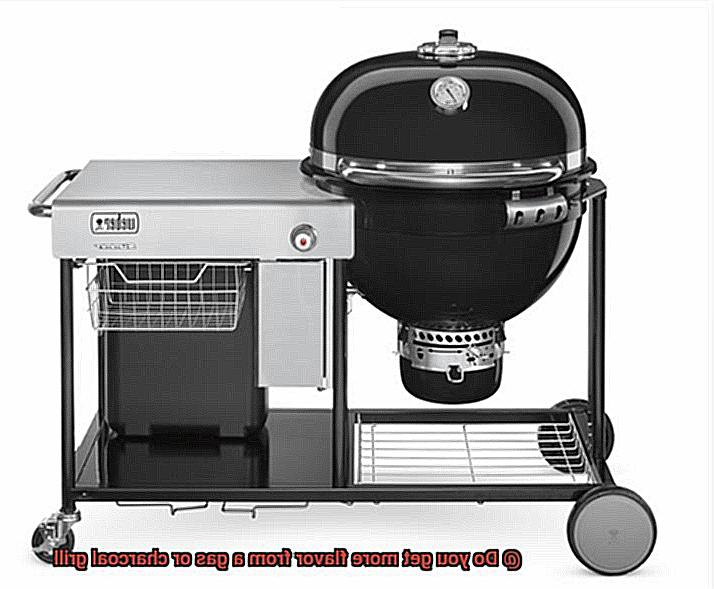
Pros and Cons of Charcoal Grills
If so, you might want to consider a charcoal grill. Charcoal grills have been a popular choice for outdoor cooking for many years, primarily because they impart a unique smoky flavor to the food being cooked. This added flavor comes from the intense heat source that the charcoal provides, which allows for a greater depth of flavor to be achieved. But, before you invest in one, there are some pros and cons to consider.
Pros:
- Unique Smoky Flavor: The most significant advantage of using a charcoal grill is the smoky flavor it imparts on your food. This flavor is not achievable with a gas grill.
- Affordability: Charcoal grills are usually more affordable than their gas counterparts, making them an ideal option for those on a budget.
- Portability: Charcoal grills are compact, lightweight, and do not require a gas hookup, making them ideal for camping trips or tailgating events.
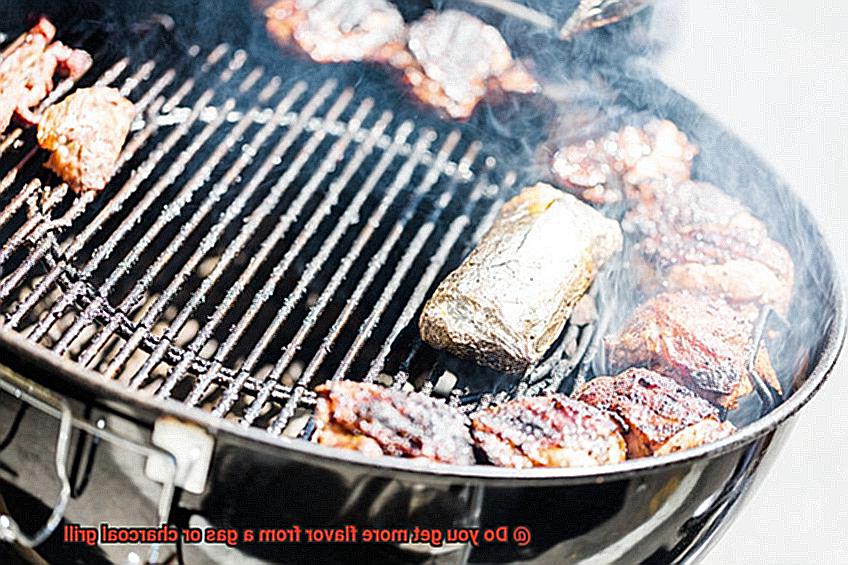
Cons:
- Time-consuming: One of the biggest disadvantages of using a charcoal grill is that they can take time to set up and get started. It can take up to 30 minutes for the charcoal to reach the right temperature before cooking can begin.
- Maintenance: Charcoal grills require more maintenance than gas grills as ash and leftover charcoal must be regularly cleaned out, ensuring proper airflow and preventing flare-ups.
- Temperature control: It can be challenging to control the temperature on a charcoal grill compared to a gas grill. External factors such as wind can affect the heat source and make it difficult to achieve consistent results.
Pros and Cons of Gas Grills
When it comes to grilling, gas grills have become increasingly popular due to their convenience and ease of use. However, as with any cooking method, there are both advantages and disadvantages to using a gas grill. Let’s take a closer look at the pros and cons of this type of grill.
Pros:
- Precise Temperature Control: One of the biggest advantages of gas grills is the ability to control the temperature precisely. With easy-to-use knobs, you can adjust the heat to get the perfect temperature for cooking delicate foods like fish or vegetables.
- Quick Heat-Up: Gas grills heat up faster than charcoal grills, making them an ideal option for those who don’t have a lot of time to spare.
- Easy to Clean: Unlike charcoal, there is no ash or debris left behind after cooking on a gas grill, so cleaning is quick and easy. All you need is a damp cloth to wipe down the grates and burners.
Cons:
- Lack of Flavor: When it comes to flavor, gas grills fall short compared to charcoal grills. This is because gas does not produce smoke, which is essential for adding flavor to grilled foods.
- Less Caramelization: Gas grills tend to cook food more quickly than charcoal grills, which can lead to a lack of caramelization and a less pronounced “grilled” flavor. This can make a significant difference in certain dishes.
To add more depth to your grilling experience, consider investing in a smoker box or other accessories that can add smoke flavor to your gas grill. However, if you prioritize flavor over convenience, then a charcoal grill may be a better option for you.
Flavorizer Bars for Gas Grills
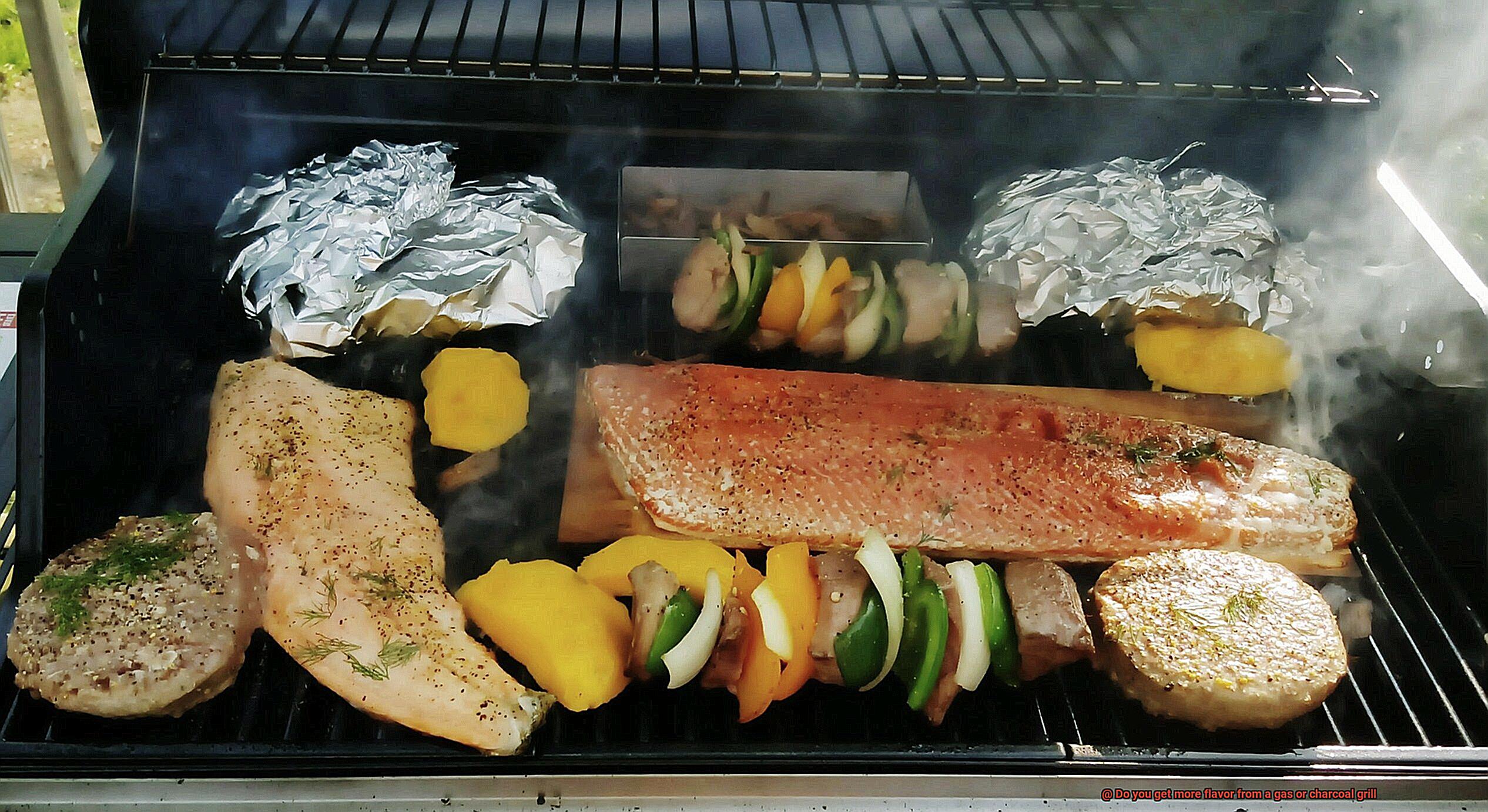
As an expert in this field, I can attest that these metal bars are a game-changer when it comes to adding that delicious, mouth-watering flavor to your grilled meats and veggies.
Flavorizer bars sit above the burners on a gas grill and catch drippings from the food being grilled. As they sizzle on the hot metal bars, smoke is created and rises up to infuse your food with flavor. This process mimics the cooking process of a charcoal grill, where the charcoal itself creates smoke that imparts flavor into the food.
Not all gas grills come equipped with flavorizer bars, but fear not – you can purchase them as an accessory and install them yourself. However, keep in mind that not all flavorizer bars are created equal. The material they’re made of can impact their effectiveness in adding flavor to your food.
So why choose a gas grill with flavorizer bars over a charcoal grill? For starters, gas grilling is generally considered easier and more convenient than charcoal grilling. Additionally, while gas grills may not be able to match the unique flavor profile of a charcoal grill, the use of flavorizer bars can help bridge that gap and offer a tasty alternative.
Tips for Enhancing the Flavor of Your Food
Grilling is a beloved pastime that brings people together, but the perfect flavor is what makes it memorable. Whether you’re a beginner or an experienced griller, there are several tips and techniques that can enhance the taste of your grilled food. Here are five sub-sections to help you achieve the perfect flavor:
Marinades – Adding Depth to Your Flavor
Marinating your meat before grilling is a great way to add depth and complexity to the flavor. A basic marinade consists of oil, acid (like vinegar or citrus juice), and seasonings like garlic or herbs. The acid helps break down the meat fibers, allowing the flavors to penetrate deeper. You can marinate your meat for as little as 30 minutes or up to overnight.
For best results, use a sealable plastic bag to marinate your meat. Make sure that the meat is fully coated with the marinade and remove any excess air from the bag before sealing it. This ensures that the marinade penetrates all parts of the meat.
Wood Chips – Infusing Smoky Flavor
Using wood chips is another tip for adding flavor to your grilled dishes. When placed in a smoker box or foil packet, wood chips release smoke as they heat up, infusing a smoky flavor into your food. Different types of wood will impart different flavors, so experiment with hickory, mesquite, applewood, and other varieties.
Soak your wood chips in water for at least 30 minutes before using them. This will prevent them from burning too quickly and help them release smoke more slowly. Place the soaked chips in a smoker box or wrap them in foil with holes poked in it and place on top of the heat source.
Seasonings – Enhancing Natural Flavors
Seasoning your meat generously with salt and pepper before grilling not only enhances the natural flavor of the meat but also helps create a flavorful crust on the outside. To create a rub for your meat, use a mixture of salt, pepper, and any other spices you like.
Be sure to season your meat well before grilling and let it sit at room temperature for at least 30 minutes before cooking. This allows the meat to absorb the flavor of the seasoning and ensures that it cooks evenly.
High-Quality Ingredients – Elevating Your Dishes
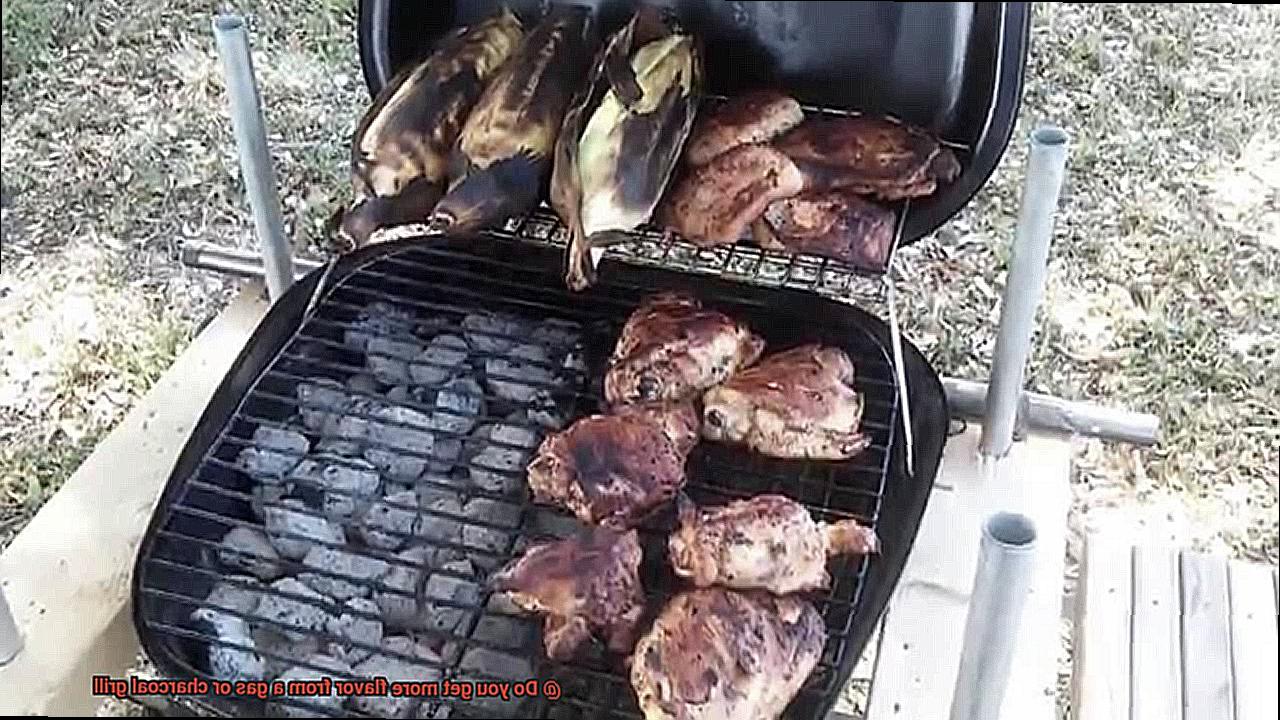
Using high-quality ingredients can make a big difference in enhancing the overall flavor of your grilled dishes. Opt for fresh herbs and spices, locally sourced meats and vegetables, and high-quality oils and vinegars.
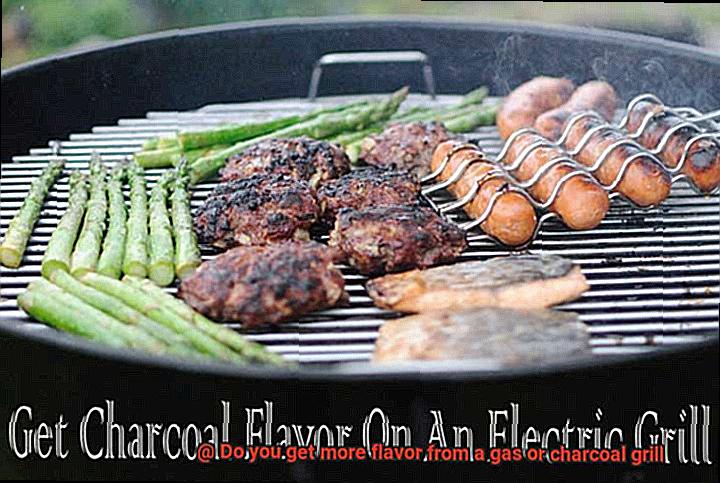
When selecting meat, look for cuts with plenty of marbling, which will add flavor and tenderness to your dish. Choose vegetables that are in season for maximum flavor.
4NgLK4WTUoE” >
Conclusion
In the end, the age-old question of which grill produces more flavor – gas or charcoal – boils down to personal preference. Gas grills offer unparalleled convenience and temperature control, while charcoal grills provide an unmistakable smoky flavor that can’t be replicated.
When selecting a grill, consider key factors such as fuel type, size, material, price, additional features, and maintenance. Also, remember that accessories like flavorizer bars can help gas grills mimic the taste profile of charcoal-grilled food.
But why stop there? With a few simple tips and tricks, you can take your grilled dishes to the next level. Marinating meat before cooking adds depth and complexity to its flavor profile. Using wood chips infuses smokiness into your dishes and seasoning meat well before cooking elevates the taste even further with high-quality ingredients.
At the end of the day, whether it’s gas or charcoal that gets your grill going, one thing is certain: grilling brings people together over delicious food.

